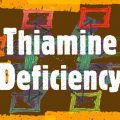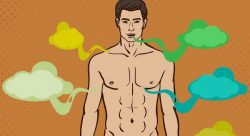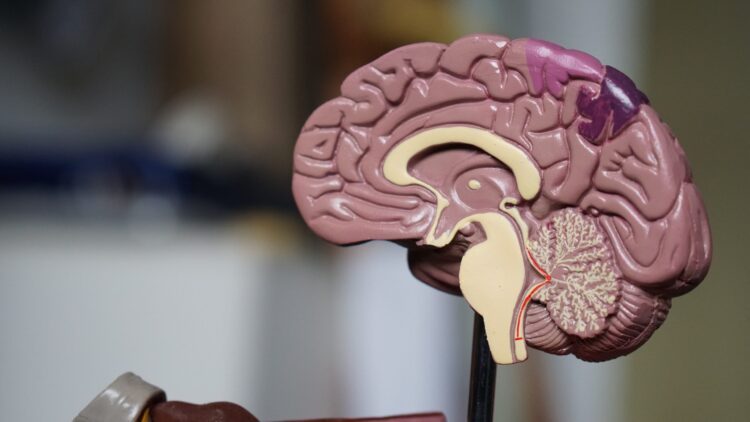It seems that just about every case study one reads, especially about nutrient deficiency-induced illness or medication-induced side effects, begins with the premise that such events are rare. This is not based upon any mathematical concept of infrequency derived from solid data. Nope, that would be entirely too logical. Rather, these proclamations of rareness are often based upon two suppositions: 1) the practicing physicians have not personally seen such cases, and hence, the desire to publish the case in the first place, and 2) the literature tells us these cases are rare, because every ‘rare’ case that is published is denoted as being rare in the introduction. If these two conditions are met, then it must, in fact, be rare.
Is it though? If we have never measured a particular nutrient or assessed the frequency of a particular side effect in our patient populations, can we really assert that what we have discovered in a particular patient is in fact, rare? It is entirely possibly that if one were to measure these variables in each and every patient one sees, that the deficiencies or side effects would present quite regularly. It is a logical fallacy to assume that somehow our ignorance of said effects proves those effects do not exist. That is precisely what happens though in the case literature, but also, in much of the research and meta-analyses of those studies. It is as though if we say something is rare often enough, it becomes the overarching truth, no matter the lack of actual data to support the claim. By way of example, I challenge you to find any case report that does not begin with some derivation of ‘X is rare’.
In my area of research, thiamine deficiency, here are just a few examples.
“A severe depletion is not commonly seen, except in cases of inadequate nutrition and/or alcoholism.”
“Cardiac beriberi, or heart failure due to thiamine deficiency, is considered rare in the developed world.”
“Thiamine deficiency is rare in developed countries and is most commonly associated with chronic alcoholism. The other predisposing conditions include chronic dietary deprivation and impaired absorption or intake of dietary nutrients.”
“Nowadays, in the developed world, it is relatively rare.”
Indeed, search the case and research literature on just about any nutrient deficiency and you will see the same assertions of rareness. Ditto for medication side effects. Read enough of these reports and one might think that we are a population of super healthy individuals who suffer no chronic illness and experience no side effects from any medication or vaccine.
I suppose if one ignores the data showing that 50% of the population lives with at least one chronic illness, generally of metabolic origins, and 27% have multiple, then sure, we can consider all of this rare, especially if one falls for the logical fallacy that an absence of evidence equates evidence of absence. Is it really, though? I cannot help but wonder if the assertion of rareness is a collective salve to save ourselves of the embarrassment of not ever having looked; a hear no illness, see no illness, speak no illness approach to medicine.
Can something be rare if it is never measured? Is it really rare or simply rarely measured?
We Need Your Help
More people than ever are reading Hormones Matter, a testament to the need for independent voices in health and medicine. We are not funded and accept limited advertising. Unlike many health sites, we don’t force you to purchase a subscription. We believe health information should be open to all. If you read Hormones Matter, like it, please help support it. Contribute now.
Yes, I would like to support Hormones Matter.
Photo by Paulette Vautour on Unsplash.















Hi Chandler,
I am 27 years old and I have been dealing with undiagnosable chronic illness since I was 19 years old. I have recently discovered that my problems are caused by thiamine deficiency. I am experiencing massive improvements, but am struggling to balance cofactors (I was aware of the B vitamins, magnesium, and potassium, but was caught off guard by sodium deficiency, which I am slowly correcting right now). Sometimes I feel like I’m going to end up in the hospital because of the induced deficiencies. When I was 19, I took a B12 supplement and induced a magnesium deficiency. I went to the ER and it didn’t show up on the blood test. The magnesium deficiency made me completely lose my appetite and I ate almost nothing for 3 weeks. If I hadn’t guessed that I had magnesium deficiency on my own, I’m not sure what would have happened.
I am just starting to go through articles on this website. These articles are giving me a clearer picture of everything that is wrong with our current medical system. I have gone through so much suffering health-wise in my lifetime as a result of nutrient deficiencies that I couldn’t get diagnosed and have missed out on so much of my life. As someone who’s not a medical professional, dealing with the severe deficiency symptoms, repeatedly getting dismissed and ridiculed by doctors (both conventional and alternative), and figuring out how to correct these deficiencies on my own has been severely traumatizing. I am so tired of not being able to get help, and I’m at a point where I don’t even feel safe living in our modern society anymore. When my cognitive functioning improves much more with the thiamine (I used to be intelligent enough to do computer science research, but my thiamine deficiency took this away), I feel compelled to learn as much as possible about nutritional medicine to attempt to prevent myself from ever developing these kinds of problems ever again. I worry about my parents having thiamine deficiency, or other deficiencies, too that a doctor would not be able to properly treat, let alone detect. I worry about my friends too. Maybe I sound over dramatic, but how do you contend with all of this? I feel devastated by all of this very frequently. I wish more than anything that our society as a whole understood the importance of micronutrients and nutrition in general—how if we don’t provide our bodies with the correct inputs, all of the chemical processes in our bodies will not be properly supported and health issues will ensue.
– Kristen
Hang in there. It will get better. Remember you are strong and when you give the body what it needs, it will heal. Healing takes time though. Give yourself the peace that you need as well. If you would like to write up and share your case story to this point as a published article, let me know. It is possible I or others might be able to offer some insight to help you along the journey.
Hi Chandler, not sure if you check replies on older posts, but I will most likely contribute a post once I fully recover. I think some of my thiamine deficiency symptoms are less traditional and it might be useful for others to read who are suffering from similar symptoms. It has been a long, horrible journey dealing with this deficiency and it has impacted just about every facet of my life. This past year especially has been brutal and there were quite a few moments when I thought I could potentially die. I still have a long way to go to fully recover, and I pray that I can get there safely, but I have recently had some incredible moments where my brain feels like it is functioning better than it has my entire life. I am able to come up with all sorts of fascinating ideas about music, etc., that I’ve never been able to come up with before and it is very exciting/giving me a lot of hope.
I am so glad you are recovering. I look forward to reading your story. Just send me a note via the contact or write for us links when you are ready to write.